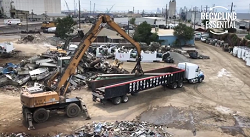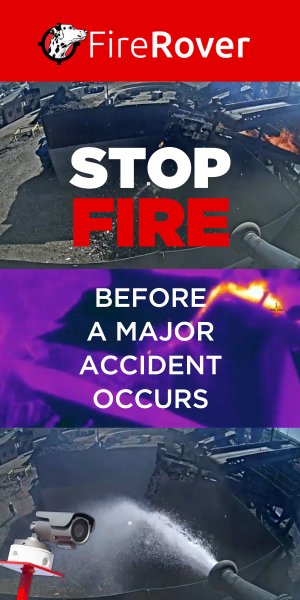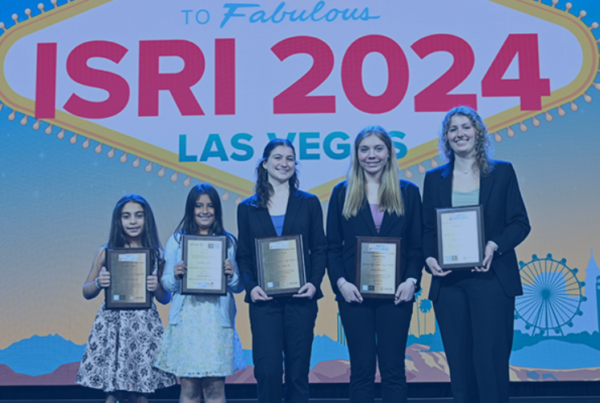The Rochester, N.Y-based REMADE Institute® has issued a request for information (RFI) to further accelerate the U.S. transition to a Circular Economy. The deadline for short- or long-form submissions is 5 p.m. EDT on Saturday, Feb. 22. The detailed RFI can be read here.
Responses will help update the institute’s technology roadmap, which currently focuses on reducing the use of raw and virgin, or primary, materials; increasing remanufacturing and the use and supply of recycled, or secondary, materials; and fostering circular innovations.
ISRI is a Founding Affiliate Member of REMADE and took part in the institute’s ideation and creation. ISRI staff have served on REMADE’s strategic and technical advisory committees.
“Over the last five years, REMADE has invested or allocated more than $85.6 million to develop innovative technologies to reduce energy consumption and decrease carbon emissions,” CEO Nabil Nasr states. “Given REMADE’s projected impacts so far, it’s important to see how we can further accelerate the U.S.’s transition to a Circular Economy — to turbocharge it.”
The RFI will also address REMADE’s sustainability strategy, including developing Circular Economy approaches that will help address climate change.
Chief Technology Officer Magdi Azer says the institute has focused its efforts and investment dollars on increasing the reuse, remanufacturing, recovery, and recycling of four energy-intensive material classes: metals, plastics/polymers, fibers, and electronics. In addition to seeking feedback about these activities, the RFI asks where REMADE should focus its efforts related to electric vehicles and photovoltaic solar power. “Having invested in a suite of technologies to increase the reuse, remanufacturing, recovery and recycling of metals, polymers, fibers and e-waste, REMADE is evaluating how to proactively respond to megatrends such as climate change, resource scarcity, and technological breakthroughs in its research agenda,” Azer says.
Last November, the institute announced a $33.2 million round of funding for 23 technology projects. ISRI is a partner in “Technical Evaluation Framework for Recycling Technologies”, a project led by the University of Michigan with the National Renewable Energy Laboratory, the Plastics Industry Association, the Aluminum Association, and the Steel Manufacturers Association also as partners.
ISRI is a partner in one of the selected projects from the institute’s fourth round of funding announced in March 2021. Led also by the University of Michigan with Ford Motor Co., Novelis, Argonne National Laboratory, the Aluminum Association, and Light Metal Consultants, the project, “Material and Vehicle Design for High-Value Recycling of Aluminum and Steel Automotive Sheet”, aims to increase sheet metal end-of-life (EOL) post-consumer recycled content and to reduce the energy and feedstocks needed to produce new vehicles. This project will produce an analytical design-for-recycling tool for automotive sheet metal to learn how vehicle design, recycling infrastructure, and sheet manufacturing process decisions affect EOL sheet recycling.
ISRI and partners Northwestern (Project Lead) and Yale universities are developing a modeling framework for the U.S. fiber recycling industry—specifically paper and paperboard—to improve long-term profitability and increase environmental benefits. The project will provide a model for use as a virtual testbed to explore resilience to volatility in scrap quantities, quality, markets, and prices, and to consider changes to current and future recycling capacities and technologies in order to increase domestic fiber recycling by 15% or more.
Along with the University of Massachusetts-Lowell (Project Lead) and ISRI member electronics recycler Sunnking, ISRI engaged in a project to examine chemical separation of mixed plastics and valuable metals using solvent-based processing in electronics recycling. This project looked to show the potential of solvent-based extraction processes to recover plastics mixed metals and plastics for cross-industry reuse. Following extraction of the plastics, the mixed stream would be primarily metals. The plastics would be recovered from the process solvent using an anti-solvent. If successfully implemented, this chemical separation method will significantly increase the recycling rates of electronics, and the recycling of plastics and metals from this source material.
ISRI collaborated in a project led by Yale University, “Mapping the Material Base of REMADE”, along with Sunnking, the Massachusetts Institute of Technology, and Unilever. This project developed a materials flow baseline for REMADE materials (metals, fibers, polymers, and e-waste) to support measurement of REMADE’s impact through its enabling of technology improvements.
ISRI was also a partner in a foundational REMADE project led by the University of Miami, “Assessment of the Impact of Single Stream Recycling (SSR) on Paper Contamination in Recovery Facilities and Paper Mills,” along with Resource Recycling Systems and the American Forest and Paper Association. This project aimed to evaluate the impact of SSR on contamination in recycled paper and explore emerging processes for minimizing contamination.
Founded in 2017, REMADE (Reducing Embodied-energy And Decreasing Emissions) is a $140 million Manufacturing USA® institute co-funded by the Department of Energy. REMADE is the only national institute primarily focused on the development of transformational technologies to support U.S. manufacturing in the transition to a Circular Economy. In partnership with industry, academia, and national laboratories, REMADE enables early-stage applied research and development of technologies that will create new jobs and will dramatically reduce embodied energy and greenhouse gas emissions associated with industrial-scale materials production and processing, and increase the supply and use of recycled materials.
Photo courtesy of Matt Seymour on Unsplash.













